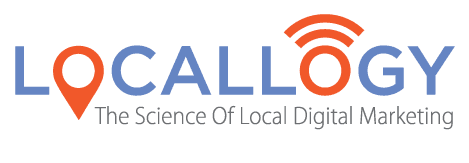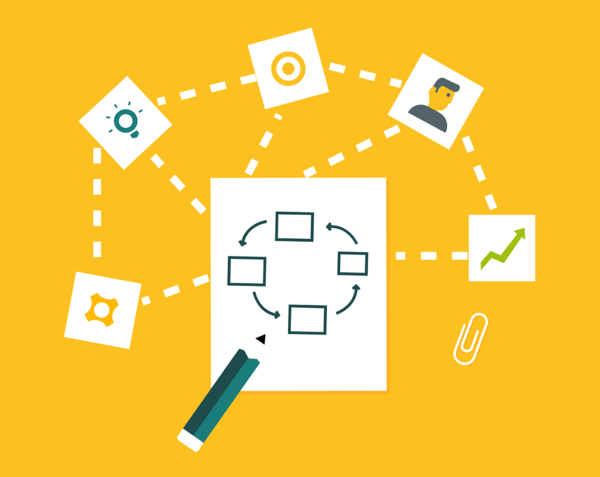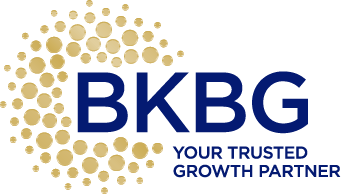Your Website's Crawlability and How it Relates to SEO
When it comes to SEO, most people think about keywords, webpage titles and tags, and backlinks. But there’s a lesser-known aspect of SEO that’s just as (or maybe more) important—crawlability.
What is crawlability? This funny word is simply describing a search engine’s ability to access and explore, or crawl, a webpage’s content and the links between pages on a particular site.
Out there in the expanse of the internet, there are bots constantly crawling around, discovering new websites and updates to existing sites. These bots crawl through a website, beginning to end, examining the content and moving from page to page within the site itself.
These crawling bots gather information as they move through a website and then send that information back to the search engine they work for.
How is Crawlability Related to SEO?
Websites that have great content, are easily navigable, and have good, clean links are great for bots. They can crawl right through, stopping on every page and soaking up lots of good information about the site. That information is then saved on the search engine’s servers where it’s accessed the next time someone does a relevant search engine query.
On the other hand, sites that have dead links, 404 errors, or an otherwise messy site structure are impossible for bots move through. And the information they’re sending back to the search engine servers is not good.
From an SEO perspective, sites that have high crawlability are favored in search results and therefore rank higher over other sites. That’s because the search engine knows the site is full of content, is navigable, and has valid links with no dead pages.
Sites with low crawlability are generally lower in the rankings because the search engine knows the site has problems and may not be helpful to the visitor.
What Affects Your Site’s Crawlability?
Many aspects of your site can play a part in its crawlability, but there are some common issues that can really wreak havoc when those bots pay you a visit. Here's a short list of things to look out for.
Server Errors and Site Crashes
Obviously, if your site is down, it’s not crawlable at all. Sure, sites go down from time to time, but the key is getting them back up and running as soon as possible. A server that’s down or a site that’s offline for an extended period of time will directly affect crawlability and subsequently, search engine rankings.
Site Structure and Usability
These bots are looking in on the backend of your site, the technical piece that ties your webpages together. If your website’s structure doesn’t make sense, if there are random pages that aren’t linked anywhere, or if something else is preventing the bot from making a clean sweep through your site, your crawlability will be low.
While the bots are crawling on the backend of your site, remember your site visitors are exploring the frontend. They, too, will see the missing or oddly linked pages, the lack of direction, and the usability issues. This will result in visitors leaving your site. Remember, many things contribute to SEO, including user experience and bounce rate.
Links and Redirects
Links, or the lack thereof, has already been mentioned several times in this article because it’s a big problem on many websites. But it’s a problem that’s really easy to fix. A link that leads nowhere, a link that leads to a 404 error, or a page that’s not linked to any other page is a huge red flag to the bots crawling around your site. When they can’t move swiftly through the links, they’re sending negative feedback to the search engine. This feedback is directly related to how high (or low) your site ranks.
Ensure your links are clean, your website menu makes sense, and you have no errors. If you have redirects on your site, not a problem. Bots can navigate those, too. Just be sure your redirects are actually redirecting to the right place.
Javascript and Others
Certain technology, like scripts, are hard for bots to navigate. They can’t complete a form or answer a question in order to move to the next webpage, so sites with Javascript or other script applications usually have crawlability issues.
Consider removing these scripts from your site. They not only cause problems with crawlability, site visitors often encounter problems with them, as well.
Boost Your Site’s Crawlability to Boost Your SEO
Increasing your site’s crawlability is usually very simple to do. It’s all about maintaining a clean site that’s easy to navigate, has good content, and provides a great user experience.
If you manage your own site, make it a point to explore every page, moving through the links in your menu and throughout your content. If a link isn’t working, fix it. If you have a dead link, remove it.
If you work with a digital marketing partner, speak to them about your site’s crawlability. They’ll be familiar with exactly what you’re talking about and they can help you learn how your site will stand up to the bots.
Get the Latest Content in Your Inbox
Want to be the first to know about new content? Sign up to get our weekly blog posts sent to your email!








